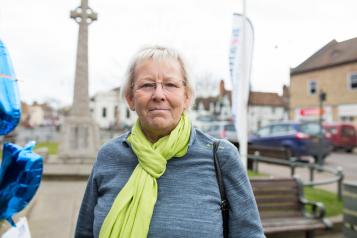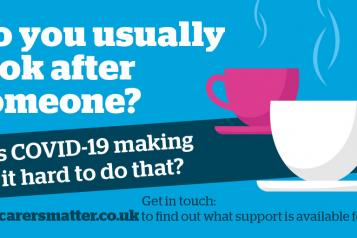What's it like to care for someone during a pandemic?

Or maybe you usually look after someone, but the lockdown has made that almost impossible to do so?
Many people won't call themselves a Carer, but if you look after someone regularly then there may be help available to you.
Let us know you're situation and we can tell you what support is available.
We've been chatting to Penny about what its like caring for someone during a pandemic.
Penny is a volunteer and the main carer for her husband who has Parkinson’s. During lockdown, Penny has been at home with her husband.
“I help him with dressing, showering, his medication, cooking and cleaning. I have to prompt him with his memory as he just forgets and can’t retrieve things. It's okay to admit you’re frustrated. Things are mentally frustrating for me and for him. It's easier to care for someone you are not related to. Our family call my husband on Zoom which gives me a chance to have some down time. The call is a positive part of his day”
To relax, Penny enjoys knitting, cooking and her garden.
“My husband knows not to disturb me if I’m knitting so it is my downtime in the sense I don’t have to be mentally available for him. I get up very early so I have an hour on my own before my husband gets up to relax or walk around the garden. I also do lots of cooking and baking. I’m planning on making “thank you” parcels with scones in them, just to say thank you to those that are helping. I enjoy writing letters as it relaxes me, it’s really important to make sure people are not lonely."
Looking after someone can be tough on a normal day, but during lockdown it becomes much harder. We know lots of people may be struggling and we really want to chat to as many of you as possible to ensure you know what support is available to you. It’s also important that we understand how you are coping so we can make sure the decision makers hear what you need


